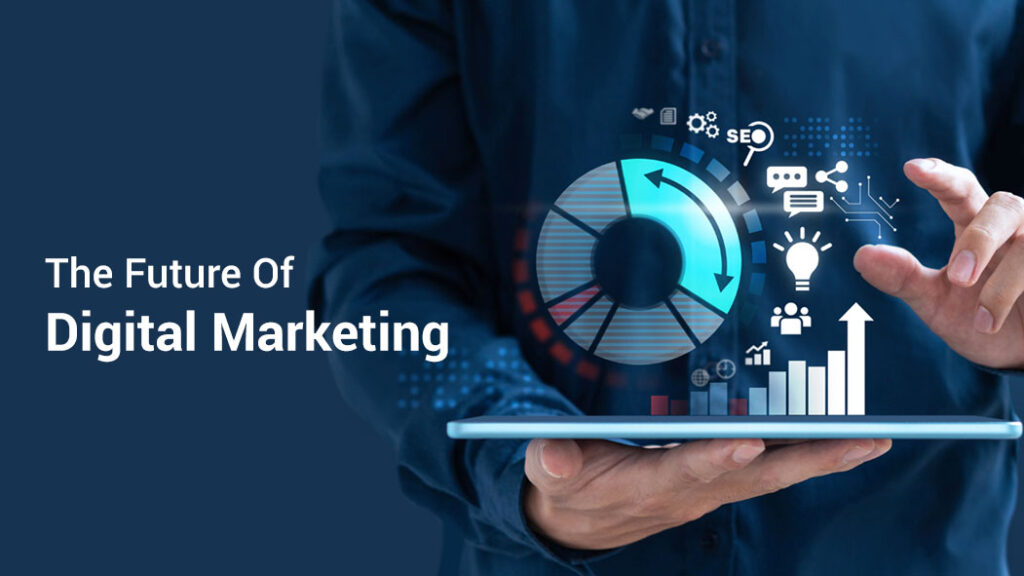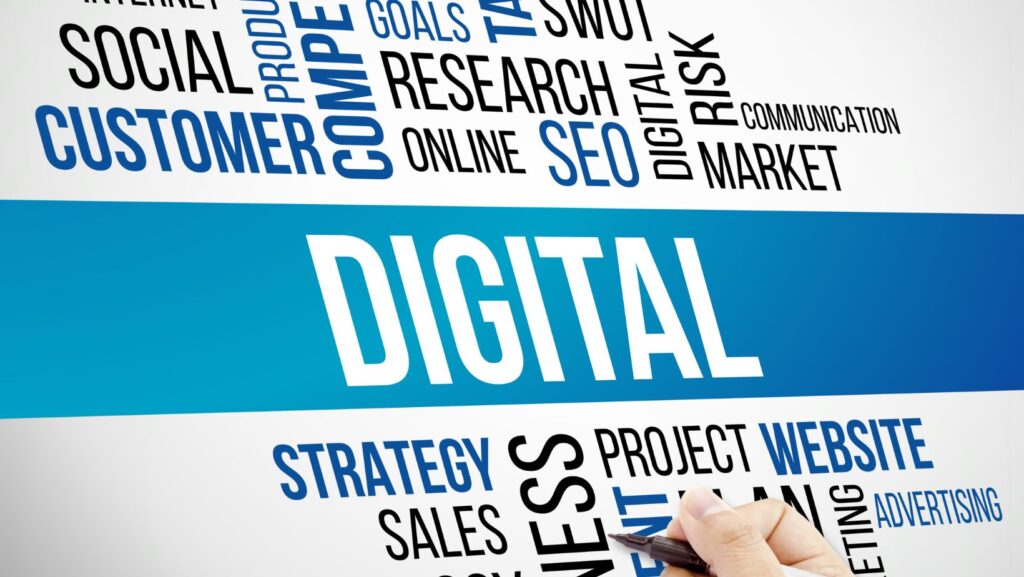As we edge closer to 2025, the digital marketing landscape continues to undergo transformative shifts, each more dynamic than the last. In an era dominated by rapid technological advancements and changing consumer behaviors, understanding and anticipating trends is not just advantageous—it’s essential. From AI-driven personalization to the burgeoning influence of voice and visual search, digital marketers are on the cusp of embracing tools and strategies that could redefine engagement, outreach, and effectiveness. This article delves into the key trends expected to shape digital marketing in 2025, offering a glimpse into the future where technology meets creativity, and where data privacy becomes more crucial than ever.
Integration of AI and Machine Learning
The integration of Artificial Intelligence (AI) and Machine Learning (ML) is revolutionizing the field of digital marketing, paving the way for more sophisticated and effective strategies as we approach 2025. This transformative impact is particularly evident in how marketing campaigns are personalized and optimized to cater to individual consumer preferences and behaviors.
AI’s ability to analyze vast datasets enables marketers to understand consumer needs with unprecedented precision. For instance, AI algorithms can track user engagement across various platforms, allowing marketers to tailor content that resonates on a personal level. This kind of targeted marketing not only enhances user experience but also boosts the effectiveness of marketing campaigns.
Moreover, AI is streamlining content creation, a previously time-consuming task. With advanced machine learning models, companies can now automate the generation of written content, images, and even videos tailored to specific audiences. This automation allows marketers to quickly adapt and respond to emerging trends and consumer feedback.
Predictive analytics, a subset of machine learning, is another area where AI is making significant inroads. By predicting future buying behaviors based on historical data, marketers can anticipate market trends and adjust their strategies accordingly. This proactive approach ensures that companies stay one step ahead, maintaining relevance and competitiveness in a fast-paced market.
An excellent example of how AI is being leveraged in digital marketing can be seen with platforms like Mostbet, where machine learning algorithms optimize betting experiences and marketing strategies to enhance user engagement and satisfaction.
As we move closer to 2025, the integration of AI and machine learning in digital marketing is not just a trend but a fundamental shift. It promises to bring more personalized, responsive, and efficient marketing solutions that can drive businesses towards unprecedented growth and customer connection.
The Rise of Voice and Visual Search
The digital marketing world is witnessing a significant transformation with the rise of voice and visual search technologies, changing how brands interact with their audiences. As 2025 approaches, these innovations are poised to become more prevalent, making them integral components of a forward-thinking marketing strategy.
Voice search optimization is at the forefront of this shift. With more consumers turning to voice assistants like Siri, Alexa, and Google Assistant for information, businesses are recalibrating their SEO strategies to accommodate spoken queries, which tend to be longer and more conversational than typed ones. This adaptation involves optimizing content to answer questions directly and using natural language that mirrors everyday speech, enhancing visibility in voice search results.
Simultaneously, visual search technology is carving its niche, transforming user experiences across various platforms. This technology allows users to upload images to search engines to find related content or products, making it a powerful tool for shopping and information retrieval. Brands are now tagging images more meticulously and using high-quality visuals that align with what visual search algorithms favor, ensuring they capture this audience.
A prime example of adapting to these search methods can be seen with Mostbet Casino, where they harness the capabilities of voice and visual search to enhance user engagement and streamline the gaming experience. By integrating these technologies, they ensure that users can quickly and effortlessly find their offerings, be it through speaking to their device or snapping a photo.

As we look towards 2025, the rise of voice and visual search represents more than just a technological advancement—it signals a shift towards more interactive and accessible digital marketing practices that align with user preferences and behaviors, setting the stage for more immersive and user-friendly experiences.
Increasing Dominance of Video Content
As we approach 2025, the dominance of video content in digital marketing continues to grow, reshaping how brands connect with their audience. This trend is fueled by consumer preferences for engaging, easily digestible content that captures attention quickly and effectively.
One of the most dynamic aspects of this trend is the surge in popularity of short-form videos. Platforms like TikTok, Instagram Reels, and Snapchat are at the forefront, offering brands creative avenues to deliver concise, impactful messages that resonate with users on a personal level. The success of short-form content lies in its ability to blend entertainment with instant information, making it a preferred format for younger demographics who value quick and engaging interactions.
Furthermore, the innovation doesn’t stop at creation; it extends into how video content is consumed. Interactive and shoppable video ads are setting a new standard for e-commerce. These videos allow viewers to make purchases or learn more about products through embedded links directly within the video, providing a seamless integration of advertising and shopping. This not only enhances the user experience but also drives direct sales, all within the same engagement.
Amidst these advancements, it’s crucial to highlight the pivotal role of mobile platforms in the consumption of video content. The article, Mobile Betting: The Future of Sports Wagering, discusses how the shift towards mobile-first content consumption is influencing not just how content is viewed, but also how it is formatted and distributed across digital platforms. As mobile devices become the primary medium for internet access, video content optimized for these platforms gains increased importance, driving marketers to prioritize mobile-friendly formats and interfaces.
As 2025 nears, the increasing dominance of video content is not just a trend but a critical element of digital marketing strategies. This evolution calls for marketers to adapt continually and creatively, ensuring that their video content is not only visible and engaging but also tailored for the ever-changing landscape of digital media consumption.
Privacy, Trust, and Ethical Marketing
As digital marketing strategies become increasingly data-driven heading into 2025, the issues of privacy, trust, and ethical marketing are taking center stage. Consumer awareness about data privacy is at an all-time high, and this consciousness is reshaping how companies collect, use, and share personal information.
Data Privacy and Consumer Rights
In the digital age, consumers are more knowledgeable and concerned about how their data is handled. With incidents of data breaches and misuse becoming more public, there’s a growing demand for stricter privacy regulations. Companies are required to not only comply with rigorous laws like the GDPR in Europe and CCPA in California but also to ensure that their marketing practices are transparent and respectful of consumer privacy. This compliance isn’t just about avoiding penalties—it’s about building trust with customers who are increasingly choosing to do business with companies they believe protect their personal information.
Transparency in Marketing Practices
Transparency is becoming a cornerstone of ethical marketing. Companies are now more forthcoming about the types of data they collect and how it’s used in their marketing efforts. This trend is about more than legality; it’s about forging a deeper connection with consumers. By openly communicating their practices, companies can alleviate consumer concerns about data misuse and enhance their brand’s reputation for integrity.
Ethical Use of AI and Big Data
The deployment of AI and big data in marketing also brings its set of ethical challenges. While these technologies offer remarkable insights and efficiencies, they also raise questions about bias, fairness, and the potential for manipulation.

Ethical marketing in 2025 will require businesses to not only use AI responsibly but to ensure that their AI systems are designed with fairness and accountability in mind. This involves regular audits of AI algorithms to check for and correct biases that could harm or disadvantage certain groups of people.
Building Consumer Trust
In the future, trust will be a crucial competitive differentiator. Companies that prioritize ethical practices and data protection are likely to attract more customers and build stronger relationships with them. This trust is built through consistent, honest communication and by showing a commitment to protecting consumer interests and rights.
As we move toward 2025, privacy, trust, and ethical marketing are expected to be not just compliance requirements but essential components of brand strategy. By embracing these principles, companies can enhance consumer confidence and loyalty, ensuring a sustainable business model in an increasingly scrutinized industry.
Conclusion
As we look towards 2025, it’s clear that the landscape of digital marketing is evolving at an unprecedented rate, driven by advances in technology and shifts in consumer expectations. The trends we’ve discussed—AI and machine learning integration, the rise of voice and visual search, the increasing dominance of video content, and the crucial importance of privacy, trust, and ethical marketing—each play a pivotal role in shaping the future of the industry. For businesses aiming to stay ahead, the challenge will be to not only adopt these innovations but to do so in a way that aligns with ethical standards and respects consumer privacy. Success in the digital marketing space will increasingly depend on a brand’s ability to adapt quickly while maintaining transparency and trustworthiness. This proactive and responsible approach will not only satisfy regulatory requirements but will also foster deeper connections with consumers, ultimately driving long-term loyalty and growth. As we forge ahead, embracing these changes and challenges will be key to thriving in the dynamic world of digital marketing.


